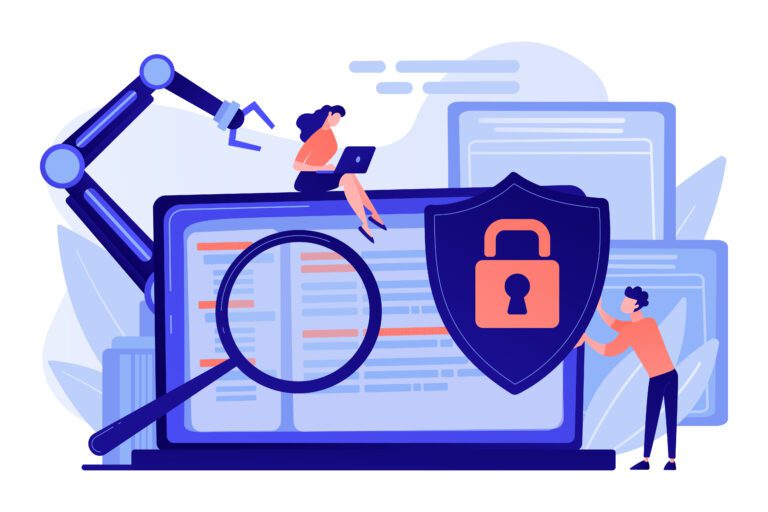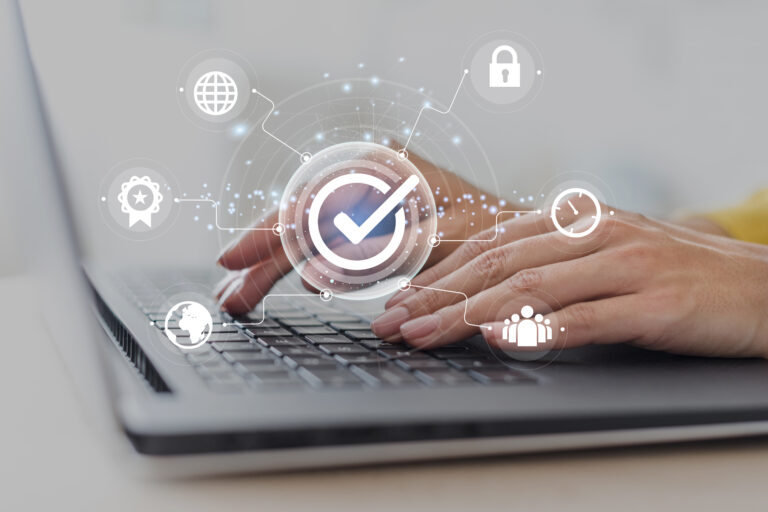Protecting your business’ online assets are paramount in protecting your operations. This effort is usually sabotaged by poor password hygiene adopted by employees. This leaves your business vulnerable to cyberthreats.
Cybercriminals are busy at finding new methods to break into company business systems every day. The usual point of entry starts with weak passwords. To wit, nearly 50% of cyberattacks in the past year involved weak or stolen passwords.* This is a wake-up call to small business to take committed efforts to enhance and implement robust password security policies. On a positive note, you can adopt best practices to protect your business’ password management processes. First, recognize the top 10 common passwords that hackers share on the dark web to hack almost anything:
- 123456
- 123456789
- Qwerty
- Password
- 12345
- 12345678
- 111111
- 1234567
- 123123
- Qwerty123
Password best practices are a big first step
The first step is to recognize potential password best practices to commence improving your cybersecurity efforts.
Adopt password management tools
Password managers are extremely important to keep your passwords safe. Tools such as these can help you store and create strong passwords to protect your online accounts. As important, password managers are a great way to keep track of all of your passwords without having to remember or reuse common passwords. Since you won’t need to remember your passwords, password managers are a great way to make your passwords nearly impossible to crack.
Use a single sign-on (SSO) solution
Single sign-on can be a very effective solution to protect passwords, as they allow users to work with a multitude of applications using just one password. This allows you to remember one password, and the SSO solution will allow you to access all connected accounts. This also means that you have to be sure that you single password that you’re using is unique and not utilized on other accounts. Also, ensuring that you’re updating this password on a regular basis is another means of protecting yourself effectively.
Don’t reuse passwords
All it takes is for one of your account passwords to be compromised, and all of your accounts will become vulnerable if you make a habit of reusing passwords. Always try to use unique passwords for all of your accounts. This can prove difficult, which is why many users being reusing passwords. It’s human nature to search for the path to least resistance. Unfortunately, hackers know this too. Consider implementing passwords management tools or SSO technology to avoid unnecessary risks like this. Lastly, be sure to never write your password on a piece of paper. Physical access to your workspace has become even easier as many of us working from home.
Use two-factor authentication (2FA) when possible
A very effective way to protect your online accounts is by utilizing two-factor authentication (2FA). 2FA is beneficial in that you are required to enter a code obtained through a secondary device, like a phone. Should someone discover your password, or even also has access to your email, they wouldn’t be able to log into your account with your telephone. This additional level protects you even when some of your passwords are compromised. This makes it significantly more difficult for hackers to break into your account.
While not perfect, 2FA is a strong security protocol that serves to protect your online accounts. Digiboost recommends that you adopt 2FA on your accounts, if you haven’t begun to do so. However, ensure that each account has a strong and unique access code. Many 2FA solutions will make this code variable with short-term expiration periods.
Don’t use information published on social media
Social media is a wonderful way to connect with friends and family and allows you to stay up to date on current events. Just remember that no matter your privacy controls, published data can always become public data. Anything that is easily obtainable through social media (e.g. name, birth date, place of birth) can be leveraged to gather personal information on you, including criminals.
Lastly, avoid using any information that can be obtained on social media for use in your passwords. This can make it easier for hackers to find the right combination of data to break into your accounts.
Digiboost can help you
Cyberattacks continue to get more sophisticated. While you can prepare yourself with the recommendations in this article, staying ahead of developing cyberthreats may prove impossible. For this reason, consider working with Digiboost to help you identify and stop cybersecurity threats in their tracks. Password management solutions, SSO, and implementing organizational password policies are just some of the ways that we can protect your business.
Schedule a consultation with Digiboost today to learn more about how we can help protect your organization.
Interested in learning more? Download our infographic by clicking here to learn how to keep your email inbox safe.
Source:
* Verizon DBIR 2022







